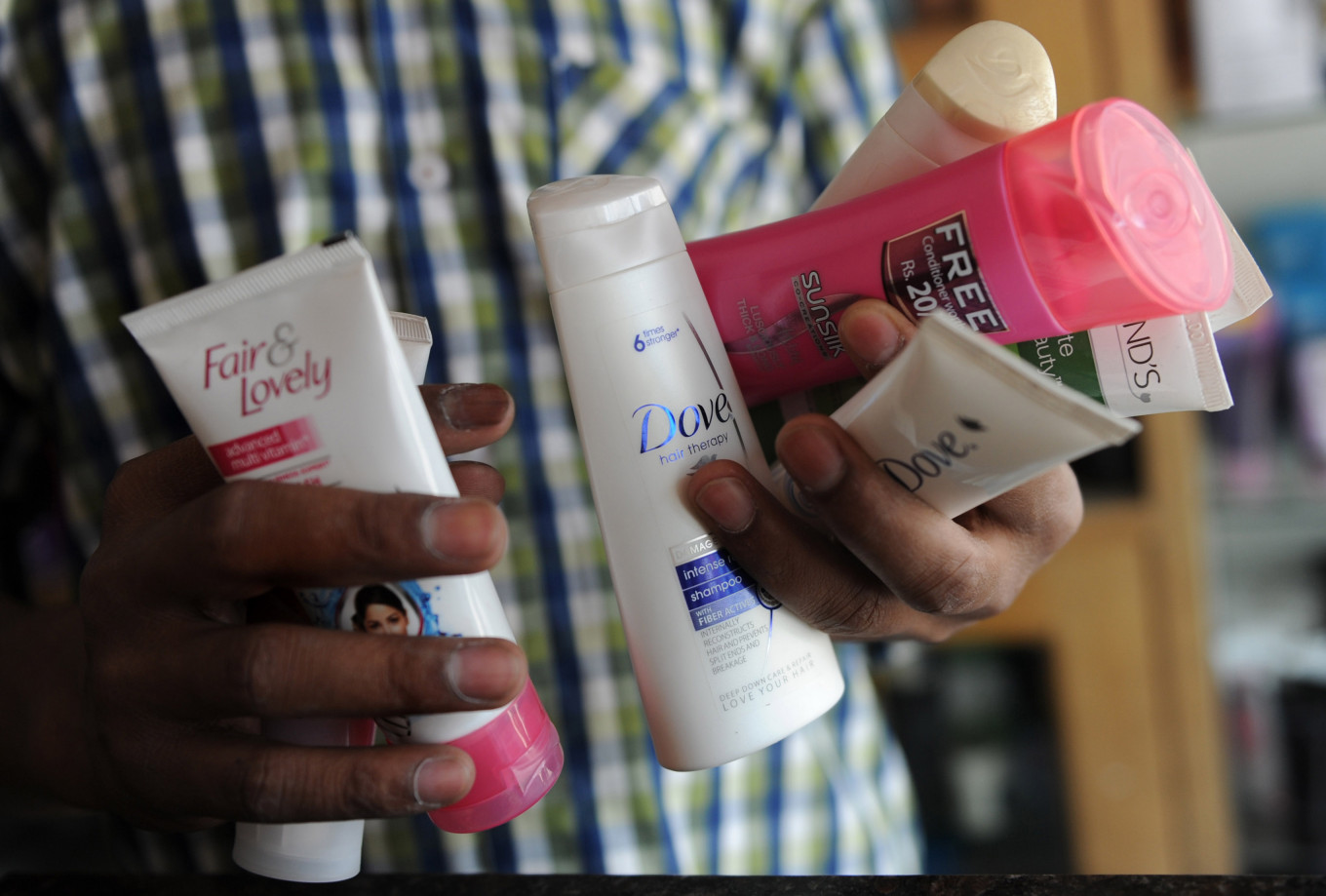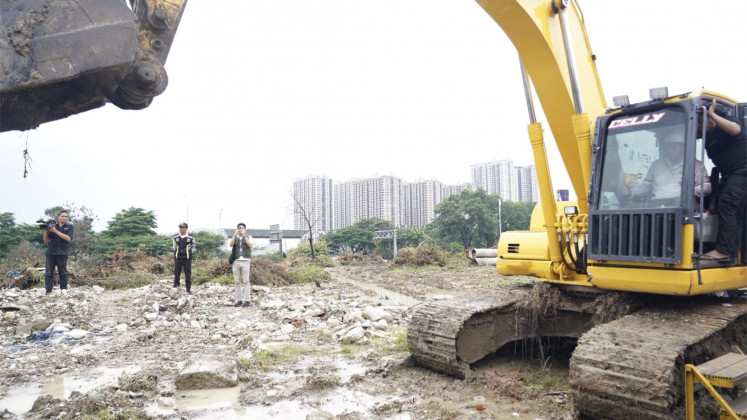Popular Reads
Top Results
Can't find what you're looking for?
View all search resultsPopular Reads
Top Results
Can't find what you're looking for?
View all search resultsUnilever's Indonesia headache worsens with boycott as local brands seize the day
Unilever, like other big consumer goods companies, has been under fire in many Muslim-majority countries for what some shoppers see as tacit support of Israel's military offensive in Gaza through business activity.
Change text size
Gift Premium Articles
to Anyone
A
boycott against Unilever and other multinationals operating in Israel has worsened the global consumer company's loss of market share in Indonesia, where it is battling smaller, often cheaper local rivals.
Unilever, like other big consumer goods companies, has been under fire in many Muslim-majority countries for what some shoppers see as tacit support of Israel's military offensive in Gaza through business activity.
Unilever first said last February that sales growth in Southeast Asia had been hurt by shoppers in Indonesia boycotting its brands in response to the geopolitical situation. In October, it revealed its market share in Indonesia had declined to 34.9 percent in the third quarter from 38.5 percent a year before.
The group's Jakarta-listed business brought in $2.39 billion in 2023, contributing 3.8 percent to group sales, but the trading environment is difficult. Despite owning major brands including Axe deodorant, Cornetto ice creams and Royco seasoning powder, Unilever has struggled to grow market share for nearly a decade as shoppers switch to cheaper local brands.
According to research firm Kantar, Unilever's Royco, Lifebuoy and Sunlight brands were among Indonesia's top 10 consumer brands in 2020. During the COVID-19 pandemic, earnings reports show Unilever raised prices sharply to keep up with rising costs. By 2023, only Royco remained in the top 10 with local laundry detergent SoKlin maker Wings Group and Roma biscuit maker Mayora Indah stepping in.
Unilever is also facing competition from homegrown halal beauty firm Paragon's Wardah, Aice, which makes ice cream, and new international players such as Skintific from China.
At a local online store, a 400-millilitre bottle of liquid soap made by Wings Group's Nuvo brand was selling for about 20 percent less than Unilever's Lifebuoy liquid soap in the same size. A 700-ml bottle of Wings' SoKlin liquid laundry detergent was about 7 percent less than Unilever's Rinso detergent.
Unilever's pricing challenges in Indonesia come as recent data shows that the size of Indonesia's middle class shrank between 2019-2024 due to layoffs and lower job opportunities, prompting demand for cheaper groceries, according to local retailers' association Tutum Rahanta.
Unilever executives said in October they are trying to give their Indonesian brands a makeover given the "significant societal change" taking place, with people increasingly shopping online and looking for better prices. They expect to see an improvement in the next six months, they said.
Unilever's Indonesia president, Benjie Yap, told Reuters in a statement: "It can be seen that we are navigating in a situation full with challenges, but we clearly understand the steps necessary to overcome it while continuing to adapt to a rapidly evolving market landscape."
"The decline in market share occurred in almost all categories due to several things, one of which is negative consumer sentiment," Yap said.
Unilever is aiming for more consistent pricing, getting its products into "more" and "better" stores, and improving the way it manages inventory and sells and distributes products online, it says.
Boycott Make An Impact
Unilever acknowledged in October that the boycotts had made a dent in sales, though it has not provided details.
PT Unilever Indonesia Tbk in October reported an 18.2 percent decline in quarterly underlying sales to Rp 8.4 trillion ($533 million).
About 87 percent of Indonesia's population of 280 million is Muslim, and pro-Palestine groups and apps have emerged urging people to boycott brands, including those made by Unilever.
A Reuters review of the global "No Thanks" app - built by pro-Palestine developer BashSquare - shows shoppers are urged to boycott, for instance, Ben & Jerry's ice creamwhile locally produced brands such as Indomie noodles are highlighted as "good for now!".
The app enables shoppers in many countries to scan product barcodes and recommends buying decisions based on parent companies' action - or inaction - when it comes to the war. The app's Instagram page claims it has 7 million users.
Riska Rahman, a 31-year-old mother of one, has been boycotting products from Rinso laundry detergent and Pond's moisturiser to Rexona deodorant and Pepsodent toothpaste in protest against Unilever's continued presence in Israel.
"We cut everything straight away," she said.
Competitors have enjoyed strong growth in most of Unilever's categories, including packaged food, beauty and home care, analysts said.
The Indonesian homecare market is expected to grow this year by 11.5 percet to $3.4 billion, and the packaged food market is estimated to grow roughly 11.7 percent to $21.8 billion, according to Euromonitor International data.
Meanwhile, underlying sales for Unilever's homecare and personal goods unit in Indonesia fell 20.8 percent in the third quarter. Underlying food and refreshment sales were down 13.3 percent.
"Local and foreign brands seized this opportunity, ramping up aggressive promotions, particularly on e-commerce platforms," Cheria Widjaja, an analyst at DBS Bank, said. The brokerage last month downgraded Unilever's Indonesia business to 'fully valued' from 'hold'.











